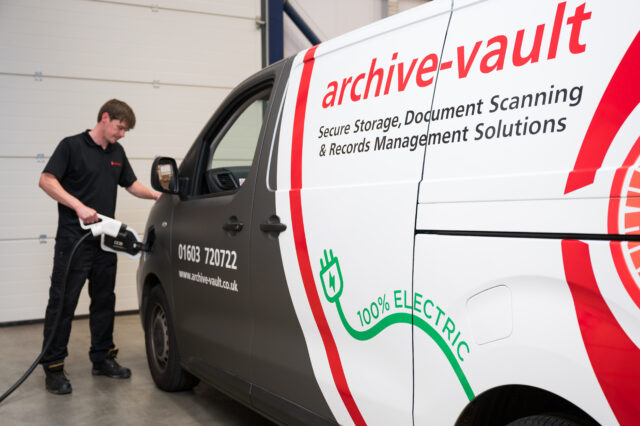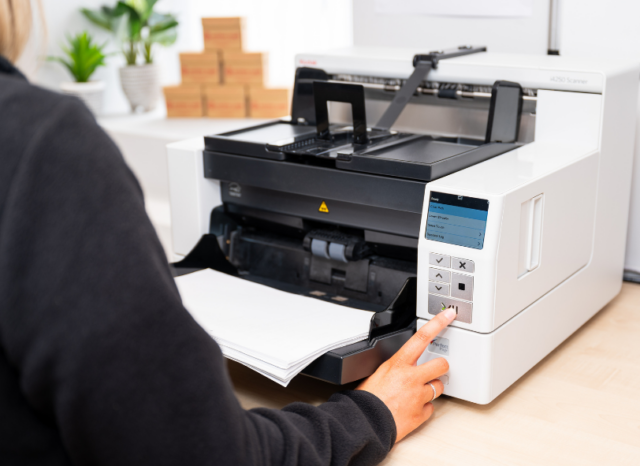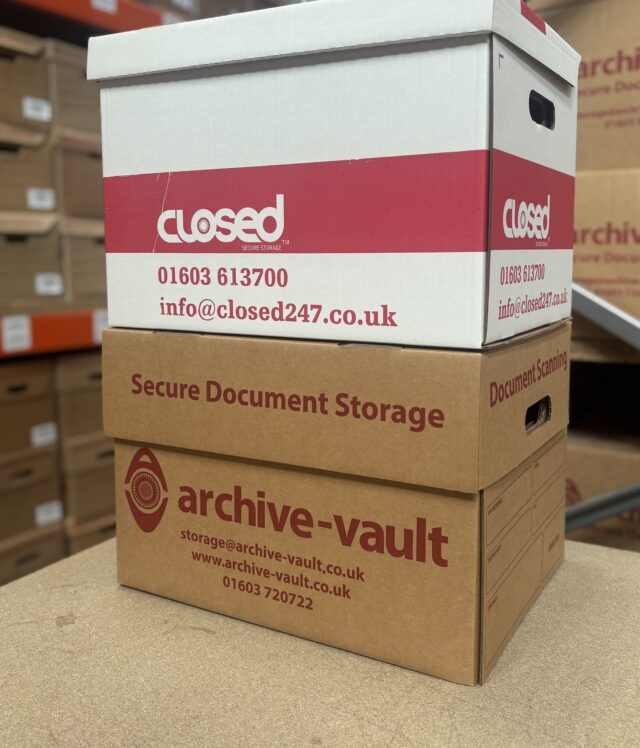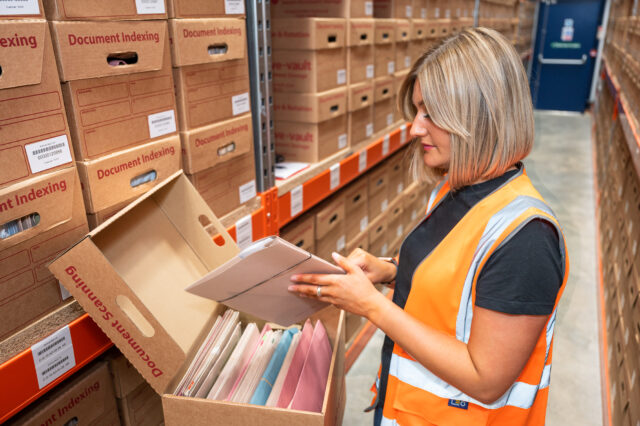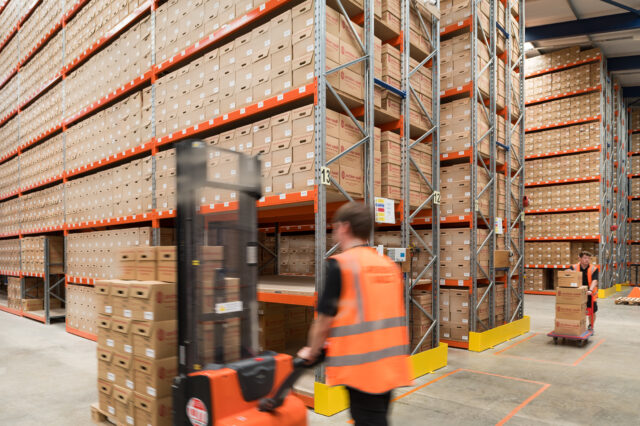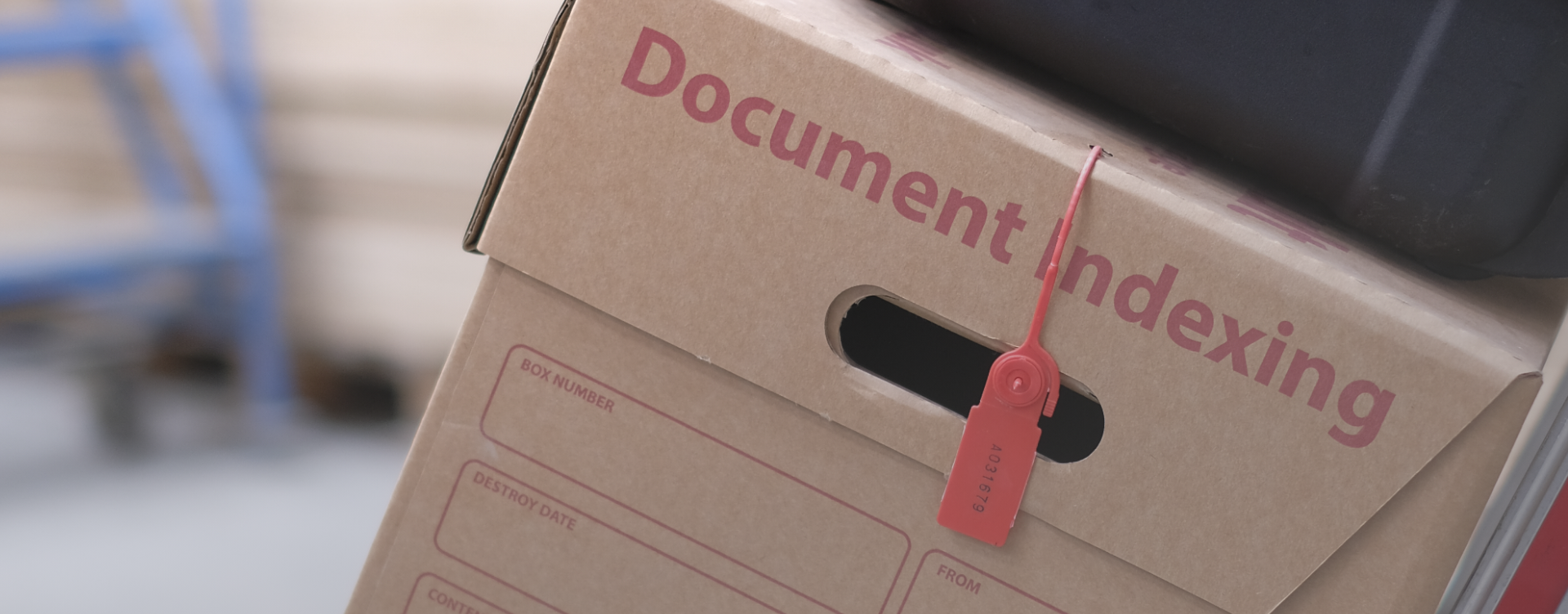Discover what we’re doing to be more sustainable while continuing to give you the outstanding service you expect.
The effects of climate change are becoming more apparent, which means the pressure is on for individuals and businesses alike to cut emissions. Organisations are primarily doing this by implementing strategies that focus on reducing, reusing and recycling. This includes monitoring energy and natural resource consumption, finding efficiencies and installing renewable energy solutions, such as solar power and air source heat pumps. Many businesses are also increasingly contributing towards a circular economy, which prioritises the reuse and recycling of materials and goods.
To help the UK towards its 2050 net zero deadline, it’s clear that we must all play our part. We’ve therefore been busy integrating sustainable practices into our operations, which will ensure we reduce our carbon emissions while continuing to provide secure records management solutions.
Here’s a rundown of some sustainable practices and how we have incorporated them to become a greener business.
Solar power
Although the UK is not famed for its sunshine, the sun still offers us plenty of renewable power potential. This is because solar panels can generate electricity even on cloudy days.
Solar panels work by absorbing direct or non-direct solar energy into individual photovoltaic cells. These cells are made from a semi-conductive material such as silicon. The cells then produce an electric charge, which in turn creates a direct current of electricity. This is then passed through an inverter to create alternating current electricity, which is the type used by the appliances in our homes and businesses.
Thanks to the growing adoption of solar panels, in 2023 solar power provided 4.9% of the National Grid’s supply. In June 2021 we installed photovoltaic solar panels on our HQ further reducing our dependence on electricity from the National Grid. In addition to solar power, we have implemented other efficiency measures, such as motion-sensitive LED lighting throughout our facility.
Air source heat pump
Heating and hot water make a large contribution towards carbon emissions. Indeed, 19% of the UK’s greenhouse gas emissions come from heating the places we live and work. We’ve therefore invested in renewable technology to ensure that our heating systems are as green as possible. We’ve done this by installing a state-of-the-art air source heat pump. These heat pumps work by extracting outside air and heating it up by passing it through a compressor. This heat is then transferred around a building’s heating system.
Air source heat pumps are powered by electricity, which means we can reduce our reliance on heavily carbon-emitting gas. Once the National Grid is powered exclusively by renewable energy, our air source heat pump will mean our heating and hot water consumption is completely decarbonised.
Electric vehicles
In January 2024, the UK government set out in law its pathway towards greater adoption of electric vehicles (EVs). As part of this plan, by 2035 all brand-new cars and vans will be emission-free.
EVs offer a greener alternative to petrol and diesel cars because they can be charged via electricity rather than relying on the burning of fossil fuels for power. Going forward, this electricity will be increasingly provided via renewable sources. Indeed, by 2020 the National Grid was already able to produce nearly half (43%) of its electricity via renewable sources such as wind and solar. EVs are also cleaner because they do not emit carbon dioxide and other harmful gases when you are driving them.
Because of their sustainability credentials and the government’s support of them, EVs have been growing in popularity. As of April 2024, there are 1.1 million fully electric cars in the UK, with an additional 655,000 plug-in hybrids.
As a secure document storage provider, we recognised that transporting documents to and from our clients’ locations could add to our carbon footprint. For this reason, we’ve already made the switch to EVs for our local deliveries, which are recharged at our facilities using electricity generated from our photovoltaic solar installation.
Reuse and recycle
To keep your documents stored correctly, we use high-quality storage boxes produced by a local supplier. These boxes are made from recycled materials and the board is FSC approved supporting responsible forestry.
Virgin cardboard admittedly has an impact on the environment because its production needs water and wood pulp. However, the industry as a whole has a much lower impact than other materials, such as plastic (in 2017, the cardboard industry produced 0.8% of the world’s emissions, compared to plastic’s contribution of 4.5%). Cardboard also has an extremely high recycling rate of 92.9%.
When boxes reach the end of their retention period, the box and its contents are securely destroyed and 100% of the material is recycled. By using cardboard for our boxes, we can help to keep our environmental impact down while also keeping your records safe.
Implementing ISO 9001
We’re very proud of our ISO 9001 certification, which means we have implemented a framework to maintain a consistent quality of service. Integrating sustainable measures into our ways of working is a part of this; optimising our operations for greater efficiency is not only good for you and us, but can also have a positive impact on the environment.
Let’s talk about your records
If you’d like to know more about how we can look after your documents, get in touch! Call our friendly team on 01603 720722 today and we’ll be happy to help.


